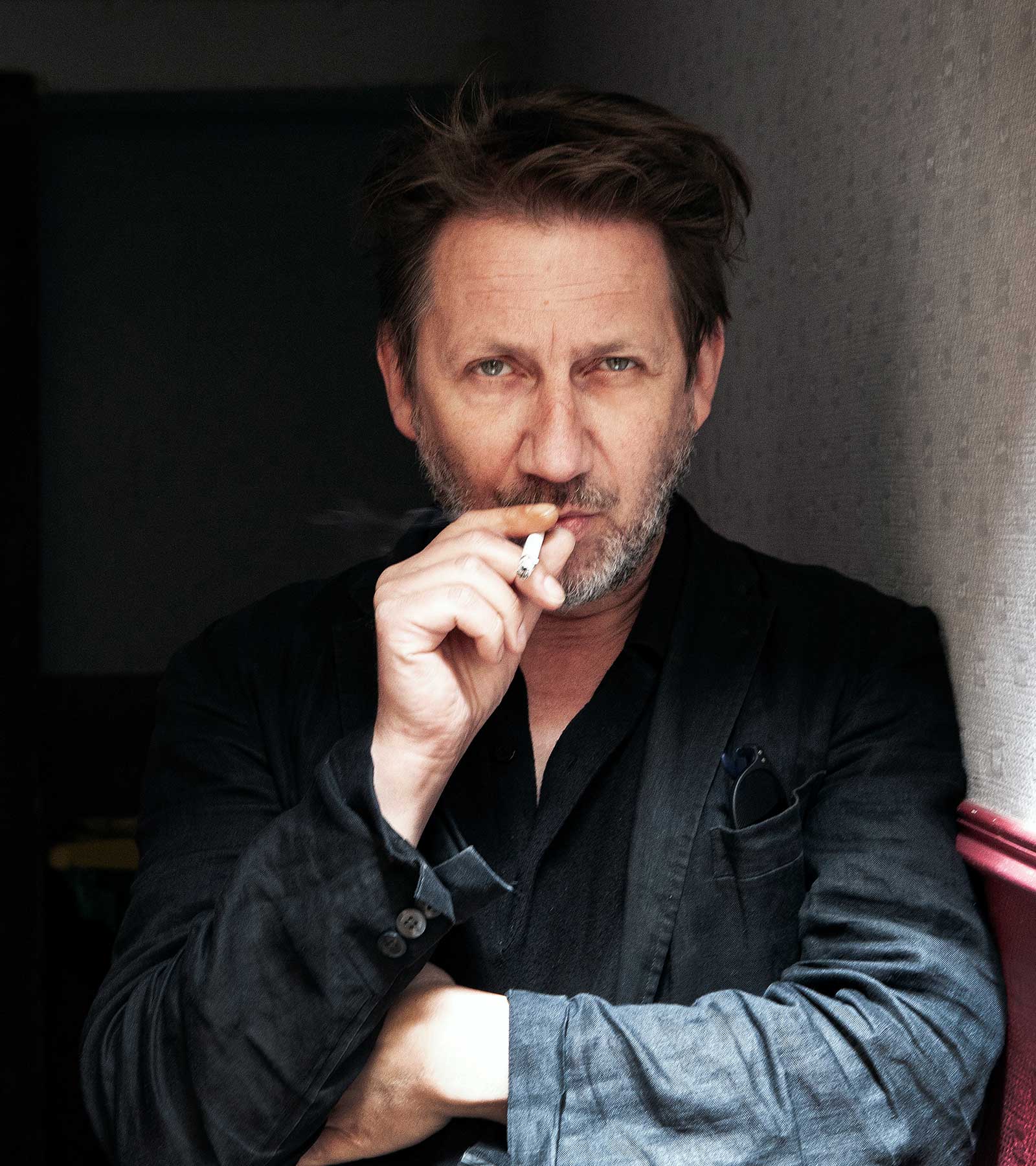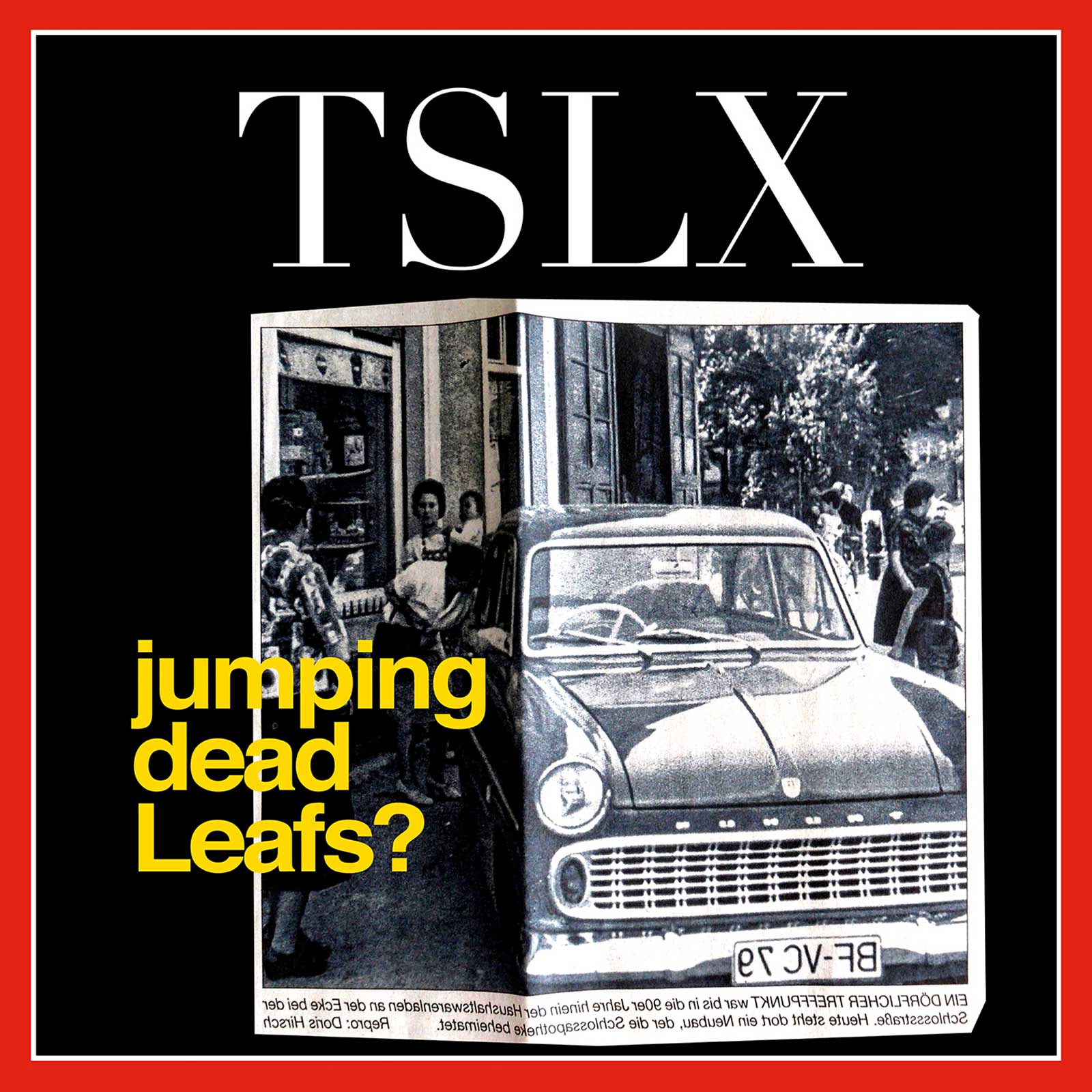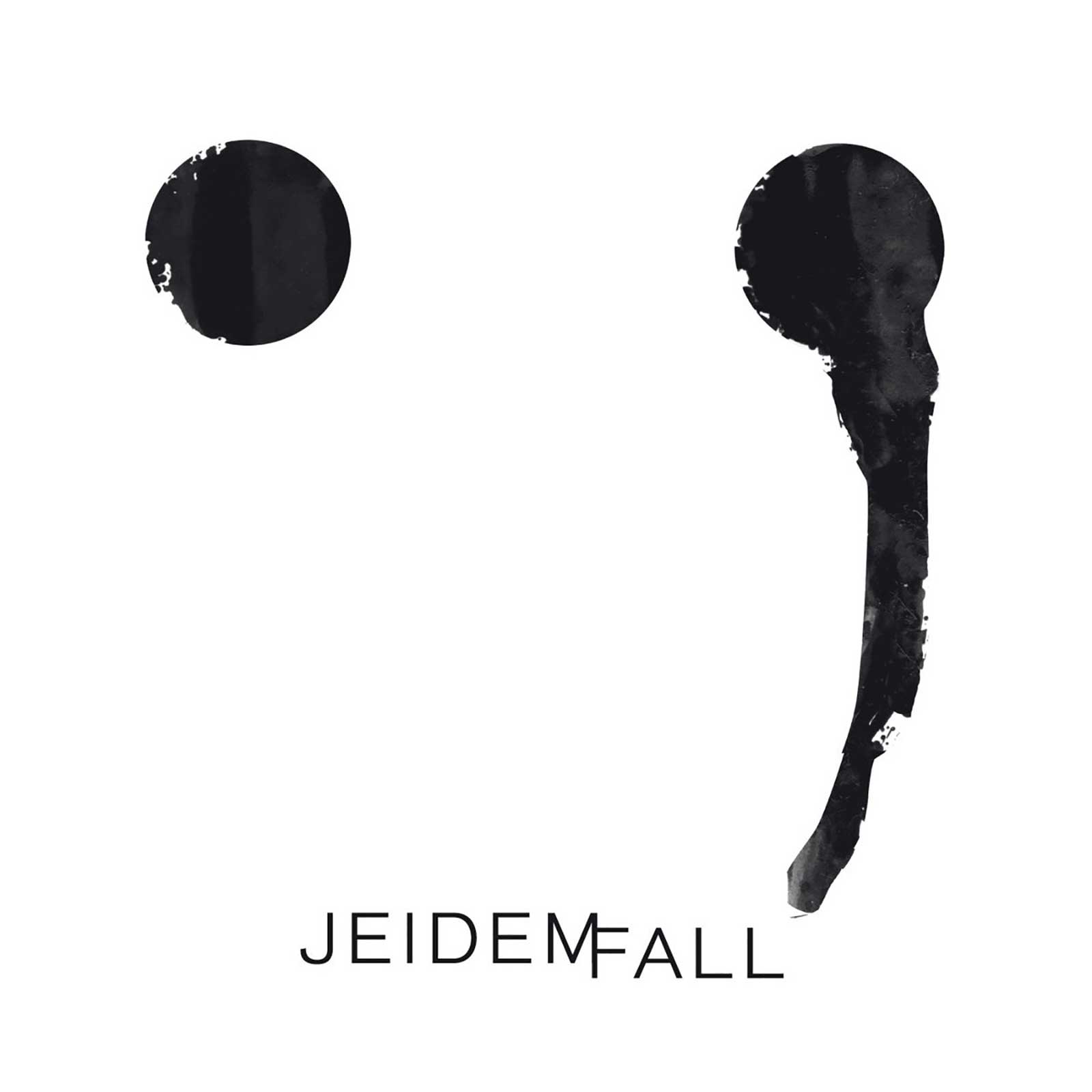№ 93
The EDWIN Music channel welcomes producer and DJ Detlef Weinrich aka Tolouse Low Trax, longstanding resident, programmer and a key figure behind Düsseldorf's Salon Des Amateurs.
Your browser is no longer supported. For the best experience, please upgrade to the latest version of Chrome, Safari or Firefox

The EDWIN Music channel welcomes producer and DJ Detlef Weinrich aka Tolouse Low Trax, longstanding resident, programmer and a key figure behind Düsseldorf's Salon Des Amateurs.
As part of the quartet Kreidler he constantly rewrites German music history since 1994. As a solo artist he has released since 2006 countless solo albums, art-related sound creations, EPs and remixes for artists like Anatolian Weapons, Brain Machine, Eva Geist, O Yuki Conjugate, Vox Low or Wolf Müller to name but a few.
Shortly after he moved from Düsseldorf to Paris, and right before he drops his 4th solo album “Jumping Dead Leafs?”, a paranormal illusiveness of magical powers melding dub power, hip hop indications and industrial abstractions, he found some time to conduct a mix for Edwin Music channel, that introduces slow, dark and dreamy midnight journey music by artists like Dijit, Genesis P-Orridge & Astrid Monroe, and some of his art of musical illusion.
We caught up with Tolouse Low Trax and he gave us an inspiring insight into the genesis of his latest album “Jumping Dead Leafs?”, pop music, his new home Paris and the current crisis for artists in the times of the pandemic.


INTERVIEW
Q. With the imminent release of your new album on Bureau B, we heard that you produced it during the first weeks of the COVID-19 lockdown in Düsseldorf. Did you reflect the pandemic in the music or was it just a good time to find peace for inspiration at large?
A. I really can’t say what the pandemic really does to us and which influences it will leave on everybody’s different activities during these days. I would not rule out a certain fatalism, but end time, no Future, all of that came to my mind. It seemed to me important to move on in all this "standstill". To counteract the wait, because it mostly creates depression. Being forced to persevere also annoyed me, but also generated some form of energy. In the end, this album turned out to be a very positive, powerful statement. A farewell and a new beginning, also stylistic. It is not always easy to formulate these forces, but I always have a basic trust in my work and during the production I quickly had the feeling that something special gets created. Something new for myself. Liberated from an address and thus freed from a visible future. Oddly enough, the pieces are completely free of hysteria and generate a powerful serenity. Well, I feel that way and can only hope that I have found a universal language that is readable.
Q: "Jumping Dead Leafs?“ is your fourth solo album. How has your work changed over the years? Do you produce with the same innocence like when you started?
A. Preserving a certain naivety, detached from the world outside, is the greatest task of an artist. I firmly believe in that. And the circumstances in the past few months have made it a little easier to get away from the mechanisms of the world that can spoil everything. I continued to use my simple, reduced form of production, although with Lucas Croon I chose a partner who oversaw the recording and was also actively involved in mixing and editing. This “help” and idea of a kind collaboration has become important to me again in the past few months. Lucas Croon is an incredibly enthusiastic person and musician. In these times of uncertainty, this was extremely helpful, since I tend to fall into a constant questioning position.
Q. How important are the non-musical components of your releases – packaging, album art, liner-notes etc?
A. Extremely important. As a trained visual artist, I see everything as a sculpture and a social object that is released into the world. All this is information with which you fill or enrich the world. In the end, a magical alchemical procedure. For this, things have to go together. Finding the right partners who are ready to be involved in implementing the idea of expanding the medium is always exciting. Over the years I developed a great intuitive security that I trust blindly. Things fit in with confidence in themselves. I could also say I have nothing to lose these days anyway.
Q. What does "pop" mean to you and how is it reflected in your work?
A. Pop has a lot to do with opportunism. Pop wants to please the world and has a morbid addiction to harmony. Good pop music tries to talk with a degree of irritation and embracement. This is of course interesting. In this sense, I have something to do with pop. For me, it is again and again also an idea of elegance and exaggeration and the creation of a better world.
Q. The COVID-19 pandemic has had a massive negative impact on the global music scene. How do you see its future and what will change in your opinion?
A. I think when it comes to celebrating and going out all will fall back into the old patterns. There may be some who don't participate anymore because they found out through COVID-19 that it was never their thing anyway. Basically, there will simply be less money which is hard for me too, as I have to survive. I often hated the weekly stays at airports all over the world and wondered about what I was doing there. But I miss playing live and the related trips, even if I have to admit that it has been a repeating routine. Not to forget that I am a little older and that the traveling felt exhausting. But when it comes back, I just won't be able to say no for ecological reasons. In the past weeks there have been many wishful forecasts regarding a more conscious handling of club culture and the appreciation of music, but that already happened in the scene before. I do not know what should surprise me in the future, but I was surprised by the pandemic and its aftermath.
Q. What records from the past have shaped your life?
A. David Byrne & Brian Eno: My Life in Bush of Ghosts (Sire 1981)
Marvin Gaye: Here, my Dear (Tamla 1978)
The Fun Boy Three: The Fun Boy Three Chrysalis (Chrysalis 1982)
David Behrman: Leapday Night ( Lovely Music, Ltd. 1987)
Everything from Muslimgauze
Q. You just moved from Düsseldorf to Paris. How does the new environment inspire you?
A. I have only been in Paris for two months, so I would need more time to make a statement. But I think just to say I produce now in Paris sounds already nice. I don't know yet what influence this environment will have on my music. Last year I recorded a pretty French record with Emmanuelle Parrenin and other guest musicians here in Paris. What is very impressive in Paris is that you can meet a lot of old legends in a local wine bar. A lot of tangible life artists to whom I have a great respect. It is undoubtedly the case that different generations of musicians live side by side here. And meeting writers, painters, photographers and models in a row at the bar has become rather rare everywhere else.